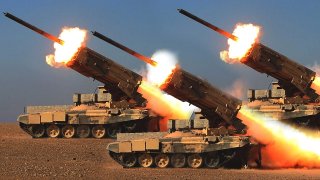Russia Used Chemical Weapons In Ukraine and Is Now Paying the Price
Russian units have widely used riot control agents and chloropicrin, a toxic choking agent first deployed in the trenches of World War One, against Ukrainian troops.
The Russian military has used chemical weapons in Ukraine. Now, it is being sanctioned for its illegal activities.
The use of chemical weapons against Ukraine is yet another war crime by the Russian military.
Chemical Weapons and Sanctions in Ukraine War
The specter of chemical warfare once more arises on European soil more than a century after World War One introduced humanity to the barbarous cruelty of chemical and biological warfare.
Russian units have widely used riot control agents and chloropicrin, a toxic choking agent first deployed in the trenches of World War One, against Ukrainian troops.
Among the units and individuals sanctioned are the Russian military’s Radiological, Chemical and Biological (RCB) Defence units and their leader, Lt. Gen. Igor Kirillov, the Chief of the Nuclear, Chemical, and Biological Protection Troops of the Russian Armed Forces. Kirillov is cited as ordering the deployment of chemical weapons in Ukraine, as well as acting as a, “significant mouthpiece for Kremlin disinformation.”
RCB units are responsible for the identification of and decontamination from radioactive, chemical, and biological hazards. On a day-to-day level, RCB troops run the Russian military’s chemical weapons program and are the ones responsible for deploying chloropicrin against Ukrainian units.
“Putin's forces have broken international law by using chemical weapons in Ukraine, and the UK is taking action with sanctions. The UK’s Ministry of Defense has already provided protective equipment and decontamination kits to boost Ukraine’s protective capabilities,” the British Ministry of Defense announced.
In addition, the United Kingdom sanctioned two Russian military laboratories for providing support for the development and deployment of chemical weapons in Ukraine.
“Russia’s flagrant disregard for the Chemical Weapons Convention is a serious violation of international law. Agents of Putin’s mafia state were also responsible for deploying the deadly nerve agent Novichok on the streets of Salisbury in 2018, and against opposition leader Alexei Navalny in 2020,” the British government stated.
The Ukrainian military has received Chemical, Biological, Radiological, and Nuclear (CBRN) protective gear from the United States and NATO.
The U.S. has also begun proceedings to sanction Russian units and individuals for their role in the deployment of chemical weapons against the Ukrainian forces.
Practicality and Accountability
In practice, such sanctions will likely have limited effect on the short term and only potential effect on the long term. The Kremlin is waging an illegal war with plenty of war crimes. Russian troops have killed, maimed, tortured, and raped Ukrainian captives and civilians with little regard for international law. The perpetrators could be held accountable if the war ended at Moscow’s gates with a defeated Russia surrendering unconditionally. But that is hardly going to happen without the involvement of the United States and the West, a scenario no one desires. Short of such an outcome, it is hard to punish war criminals in the sanction of their homeland.
Military and political officials from Nazi Germany and Imperial Japan were only punished after World War Two because the Allies could punish them. Without the ability to try and punish, sanctions have little practical effect.
About the Author
Stavros Atlamazoglou is a seasoned defense journalist specializing in special operations and a Hellenic Army veteran (national service with the 575th Marine Battalion and Army HQ). He holds a BA from the Johns Hopkins University and an MA from the Johns Hopkins’ School of Advanced International Studies (SAIS). His work has been featured in Business Insider, Sandboxx, and SOFREP.
Image Credit: Creative Commons and/or Shutterstock.


